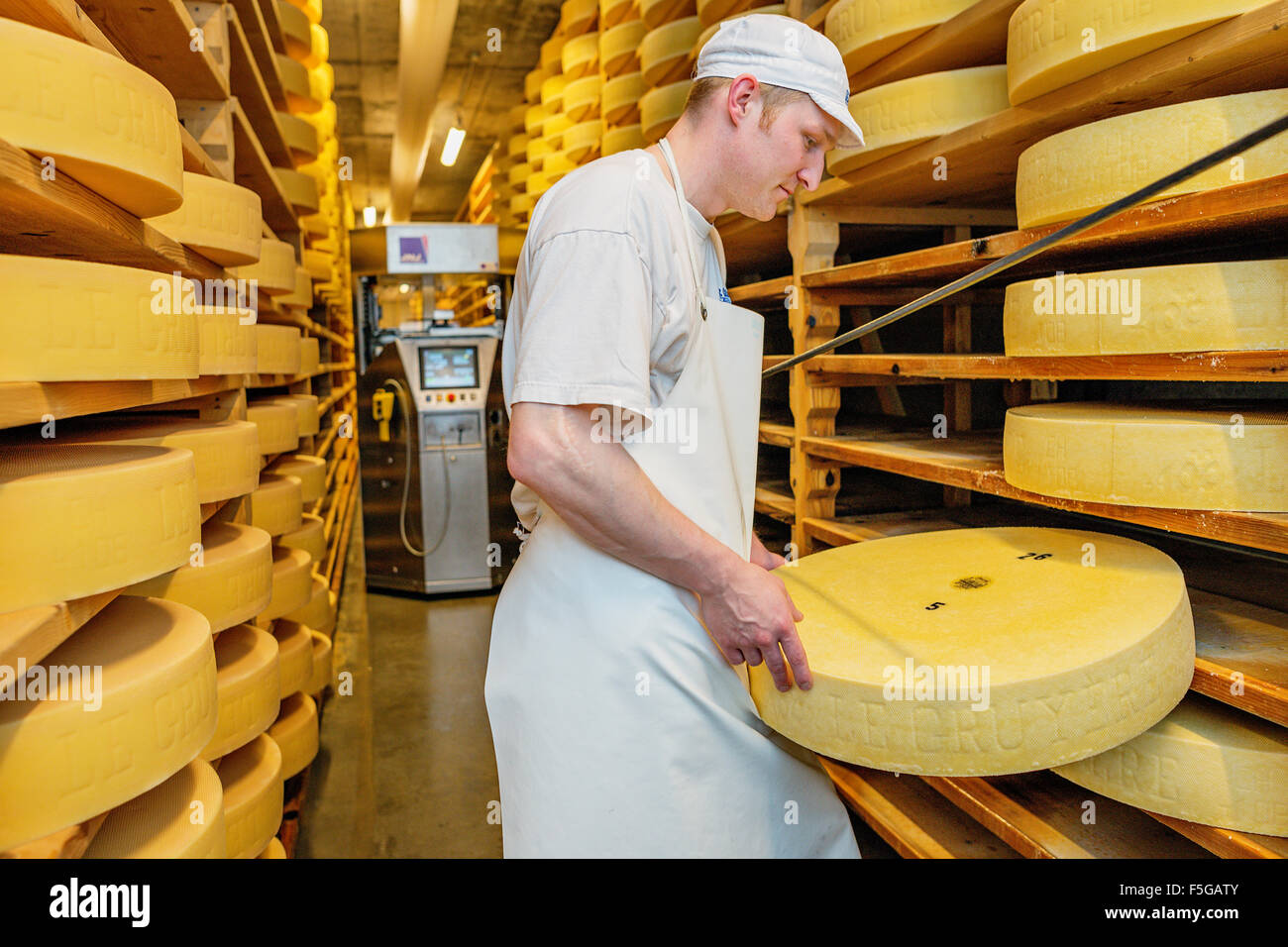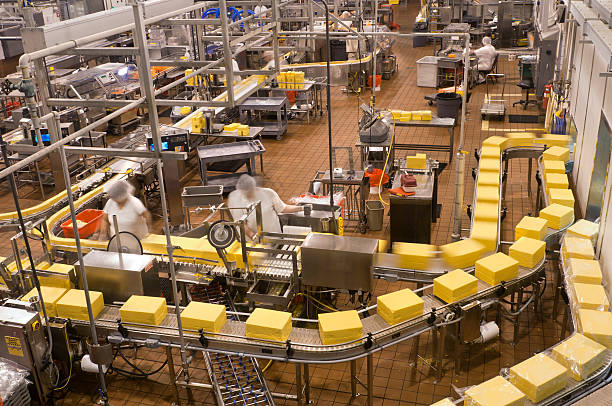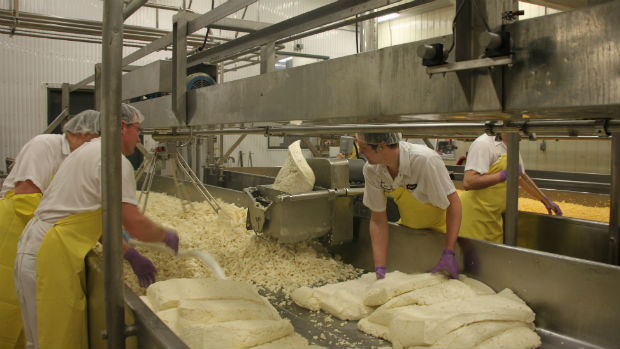Cheese Makers Melbourne: Crafting best Cheeses In Your Area
Cheese Makers Melbourne: Crafting best Cheeses In Your Area
Blog Article
Recognizing the Scientific Research Behind Cheese Production: From Milk Choice to Last Product
The elaborate procedure of cheese manufacturing starts with the mindful selection of milk, a selection that exceptionally affects the last product's taste and texture. Recognizing the critical duty of germs in fermentation reveals exactly how these microorganisms transform lactose right into lactic acid, an essential active ingredient in developing the cheese's character. cheese store melbourne.
Milk Choice Refine
The choice of milk is an essential step in the cheese manufacturing process, as it directly influences the taste, structure, and quality of the end product. Different aspects need to be considered throughout this selection, consisting of the source of the milk, the type of the animals, and their diet regimen. Cow's milk, goat's milk, and lamb's milk each possess unique residential properties that add to the special characteristics of various cheese ranges.

In addition, the nutritional material of the milk, affected by the pet's diet, can modify celebrity's last qualities. Top quality milk, sourced from healthy and balanced animals, makes certain a remarkable cheese product, stressing the importance of strict quality control steps in the milk option process. Therefore, careful factor to consider in milk choice is crucial for successful cheese production.

Role of Microorganisms in Fermentation
Complying with the mindful option of milk, the fermentation process plays an essential function in cheese production, where germs are introduced to change the milk into cheese. The key feature of these bacteria is to convert lactose, the sugar existing in milk, right into lactic acid. This acidification not only modifies the pH of the milk but also plays an essential duty in taste advancement, texture, and conservation of the end product.
Lactic acid bacteria (LAB), such as Lactococcus and Streptococcus varieties, are typically made use of in cheese production as a result of their capability to thrive in milk and their payment to the fermentation procedure. The metabolic tasks of these microorganisms lead to the manufacturing of numerous metabolites, consisting of taste substances and antimicrobial materials, which inhibit wasting organisms and pathogenic bacteria, therefore enhancing cheese safety and security.
Additionally, the fermentation process influences the general characteristics of the cheese, including its aroma, preference, and texture. Different pressures of germs can pass on distinct flavors and add to the unique profiles of various cheese types. Hence, the choice of bacterial cultures is an essential action in accomplishing the preferred cheese quality and consistency.
Coagulation and Curd Development
In the cheese production process, coagulation notes an essential change from fluid visit milk to solid curds. This procedure is typically matched by the acidic setting created by lactic acid germs, which even more help in coagulation by reducing the pH of the milk.
The resulting curds are created as the fluid whey starts to separate. Variables such as temperature, the quantity of rennet made use of, and the moment permitted for coagulation are vital in establishing the texture and high quality of the curds. For example, higher temperatures and longer coagulation times normally produce firmer curds, suitable for more difficult cheeses. cheese makers melbourne.
Once curds are formed, they are cut into smaller sized items, enabling whey to run away extra successfully. This step is vital, as it affects the dampness material and total attributes of the final cheese item. Proper administration of coagulation and curd development is important for achieving particular cheese designs and desired taste accounts.
Aging and Flavor Advancement
After the curd has actually been developed and whey has been drained pipes, the following phase in cheese production is aging, likewise referred to as maturation. This critical procedure significantly influences celebrity's final flavor, texture, and fragrance. During aging, numerous biochemical and microbiological transformations occur, impacting the overall sensory profile.
The aging environment, consisting of temperature and you can check here moisture, plays a vital function in taste growth. Enzymes and germs existing in celebrity facilitate resource the breakdown of healthy proteins and fats right into smaller sized molecules, leading to the development of amino acids, fats, and unpredictable compounds. These improvements add to the complexity of taste and scent, with unique accounts emerging based on the certain cheese range.
Additionally, the period of aging is crucial; shorter aging periods usually yield milder flavors, while longer maturation cause even more robust and nuanced profiles. Elements such as the milk source, cheese type, and certain aging techniques better improve the diversity of flavors produced. Inevitably, aging is a delicate equilibrium of time, environmental conditions, and microbial activity, finishing in the one-of-a-kind characteristics that define each cheese variety.
Quality Assurance in Cheese Manufacturing
Guaranteeing high requirements throughout the cheese production process is crucial for supplying a quality product that meets customer assumptions - cheese store melbourne. Quality assurance (QC) includes different phases, starting from raw milk choice to the final aging procedure. Each stage needs meticulous attention to information to stop contamination and make sure consistency
During milk selection, manufacturers need to examine aspects such as fat web content, pH levels, and microbial quality. Normal screening for somatic cell counts and bacterial loads is vital to make certain the milk's suitability for cheese making. In the manufacturing phase, QC procedures consist of keeping track of the temperature, level of acidity, and rennet activity, which considerably affect structure and taste.
As cheese grows, constant sensory assessments and research laboratory evaluations are performed to evaluate taste advancement, texture, and general high quality. Any type of inconsistencies from developed criteria require corrective actions to keep item honesty.
In addition, documentation and traceability are crucial parts of reliable quality assurance, allowing producers to track the cheese from farm to customer. By carrying out durable QC protocols, cheese producers can not only enhance product high quality yet likewise build customer depend on, guaranteeing their place in an open market.

Final Thought
In final thought, the science of cheese manufacturing encompasses a number of critical points, each dramatically impacting the final item. The careful choice of milk, the crucial function of microorganisms in fermentation, the improvement of liquid milk right into curds through coagulation, and the aging process jointly add to the growth of special tastes and structures. Rigorous quality control measures guarantee that each cheese range satisfies established criteria, thereby enhancing customer fulfillment and preserving the honesty of the cheese-making custom.
Report this page